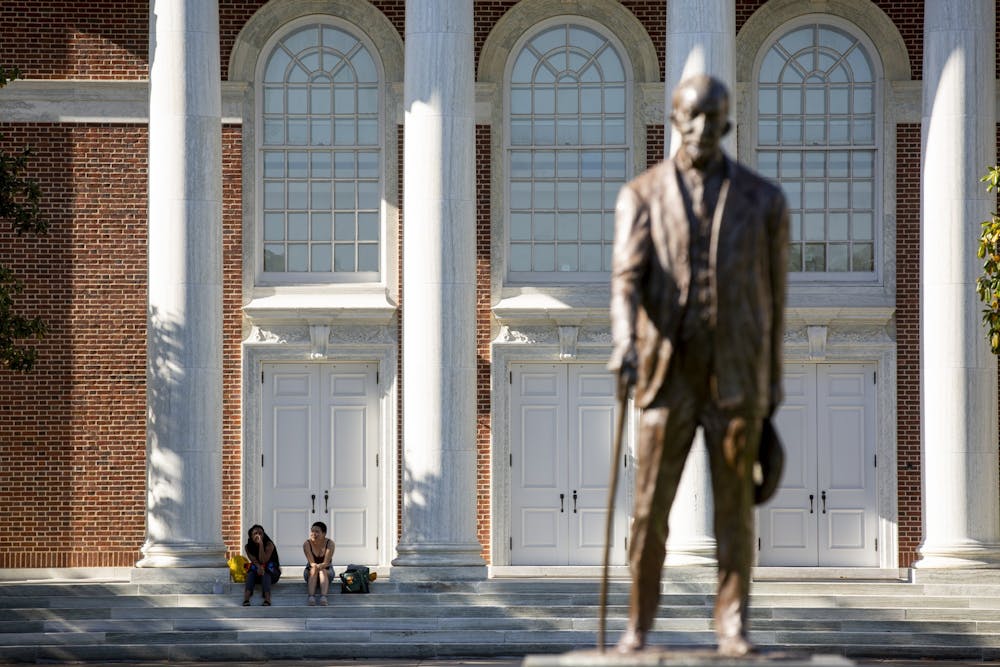Duke joined 58 other colleges and universities Sunday in filing an amicus brief in support of a lawsuit challenging the Trump administration’s new visa regulations for international students.
The new policy would not permit international students studying under F-1 educational visas to return to or remain in the United States if they are only taking online courses, according to a July 6 news release from U.S. Immigration and Customs Enforcement.
The lawsuit challenging the policy was filed Wednesday in U.S. District Court in Massachusetts by Harvard University and the Massachusetts Institute of Technology. It criticizes the policy for potentially leaving international students with no educational opportunities.
“Just weeks from the start of the fall semester, these students are largely unable to transfer to universities providing on-campus instruction, notwithstanding ICE’s suggestion that they might do so to avoid removal from the country,” the case report reads. “Moreover, for many students, returning to their home countries to participate in online instruction is impossible, impracticable, prohibitively expensive, and/or dangerous.”
The report also considers that Harvard and MIT must choose between moving forward with their plans to remain largely online for the fall, which would jeopardize the education and safety of their international students, or reopening their campuses, which would create a public health risk to all students.
“The effect—and perhaps even the goal—is to create as much chaos for universities and international students as possible,” the report states.
Michael Schoenfeld, vice president for public affairs and government relations, told The Chronicle Wednesday that Duke planned to join amicus briefs—filed in court by outside parties who have an interest in the case—in support of Harvard and MIT’s lawsuit.
The brief Duke signed, filed Sunday, also features signatures from universities such as Stanford, Vanderbilt and the seven Ivy Leagues other than Harvard. It notes that these institutions’ international students “have helped make American higher education the envy of the world.”
The brief criticizes “the government’s failure to comply with one of the most fundamental principles of administrative law: that the government must provide a reasoned explanation for its actions and consider all important aspects of a problem before imposing burdens on regulated parties.”
In a July 7 statement, President Vincent Price described the new ICE policy as a “misguided effort” and expressed support for the University’s international students.
Given that Duke will offer in-person, hybrid and online classes for the Fall semester, there are efforts being made to certify the University as a hybrid institution, with students able to take in-person and online classes. The new ICE rules state that F-1 students at hybrid schools may not take their entire course loads online.
Get The Chronicle straight to your inbox
Sign up for our weekly newsletter. Cancel at any time.

Leah Boyd is a Pratt senior and a social chair of The Chronicle's 118th volume. She was previously editor-in-chief for Volume 117.

